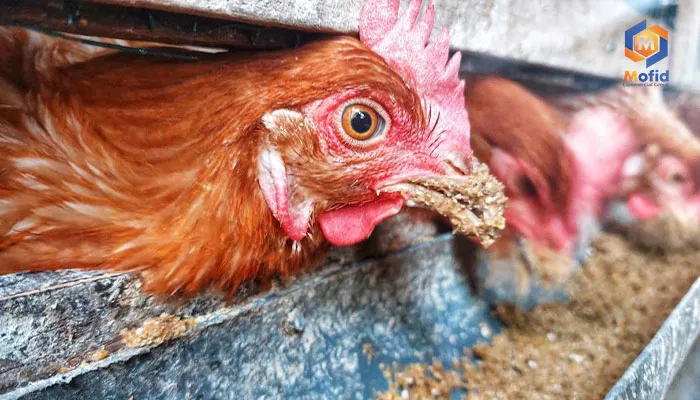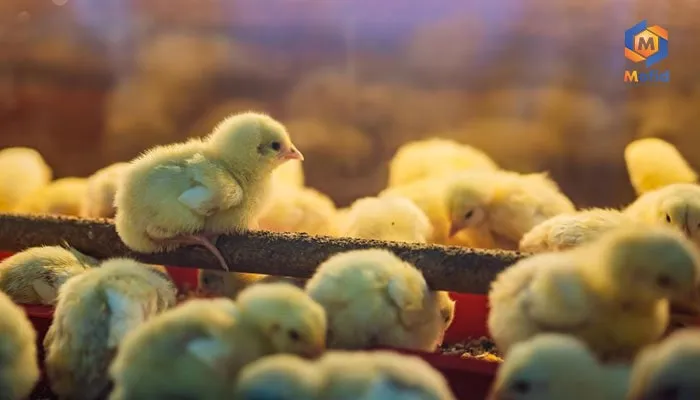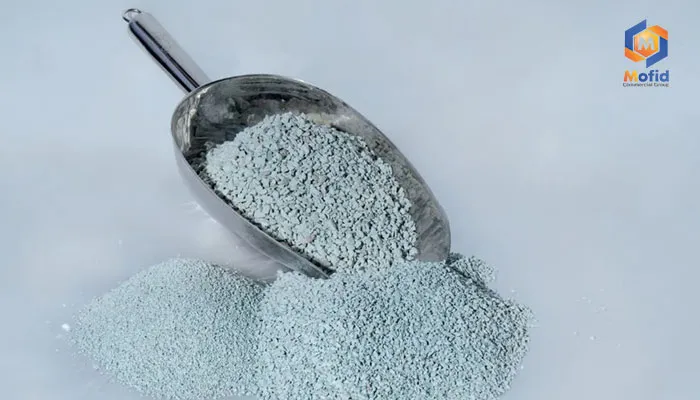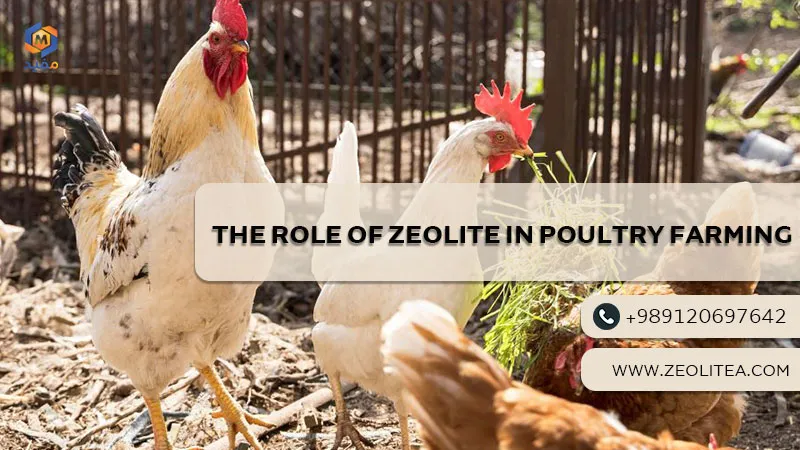Using zeolite in poultry farming can lead to improved health, increased production efficiency, and reduced maintenance costs. Due to their porous structure and ion exchange capabilities, zeolites can enhance poultry health and performance. Here, we discuss the key roles of zeolite in poultry farming.
Applications of Zeolite in Poultry Feed

Zeolite for Poultry Feed
Zeolites have significant applications in the poultry feed cycle due to their unique properties, which contribute to improved nutrition, growth, and health of poultry. Some of the main uses of zeolite in poultry feed include:
- Improved Digestion and Nutrient Absorption: Zeolites can act as adsorbents, trapping toxins and harmful substances in poultry feed. This action improves digestive performance and increases nutrient absorption. Zeolites also help stabilize stomach pH, which can facilitate better protein and nutrient absorption.
- Increased Feed Efficiency: Thanks to their ion exchange and mineral absorption properties, zeolites can enhance feed efficiency. By absorbing moisture and improving feed consistency, zeolites facilitate nutrient digestion and absorption, leading to better and faster growth of poultry.
- Reduction of Mycotoxin Effects: One of the important applications of zeolite in poultry feed is the absorption of mycotoxins (fungal toxins) that may be present in feed ingredients. These toxins can negatively impact poultry health and performance, but zeolites help prevent problems by adsorbing and neutralizing them.
- Regulation of Gut Microbial Flora: Zeolites can improve digestive health by regulating gut microbial flora. This feature reduces the growth of harmful bacteria and promotes beneficial bacteria in the gut, leading to better digestion and reduced incidence of digestive diseases in poultry.
- Increased Eggshell Strength: For laying hens, adding zeolite to the feed can help enhance eggshell strength. This is due to zeolite’s ability to increase calcium and other minerals necessary for eggshell formation.
- Reduction of Nitrogen and Ammonia in Manure: Zeolites can reduce nitrogen content in poultry feed, thereby decreasing nitrogen excretion and ammonia production in manure. This not only improves air quality in poultry houses but also helps reduce environmental pollution.
Overall, the use of zeolite in poultry feed improves health, increases nutritional efficiency, and reduces environmental issues.
Properties and Features of Zeolite in Poultry Feed

Natural zeolites used in poultry feed have exceptional moisture absorption capabilities and can be highly hydrated. When deprived of moisture, their density decreases, leading to more empty space. During dry conditions, their crystalline structure remains stable. They possess ion exchange properties and can regulate ions in water. Additionally, zeolites have high adsorption capacity, electrical conductivity, and a network of ions, among other physical properties.
Conclusion: Natural zeolite significantly reduces disease and mortality rates among broilers and laying hens. As discussed in this article, zeolite also affects poultry bedding by reducing moisture levels, which impacts poultry health and the quality of meat and eggs. Additionally, zeolite influences eggshell quality in laying hens, with research showing that chickens receiving zeolite supplements produce more eggs with better shell quality and higher internal egg content.
Direct Purchase of Poultry Feed Zeolite

Mofid Company, offering various grades of natural and synthetic zeolite, is actively involved in the direct sale of zeolite in Iran. With extensive experience and partnerships with many zeolite mines, the company is capable of supplying natural and synthetic zeolite in any volume according to customer needs.
For consultations on purchasing poultry feed Edible zeolite or any other type of zeolite, please contact Mofid Company.





